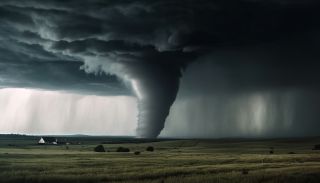Friends
When a Platonic Relationship Turns Into a Romantic One
Personal Perspective: Just Call Me Taz.
Posted November 17, 2023 Reviewed by Tyler Woods
Over the years, I’ve seen a pattern with men when I share about my mental illness. If we start out as friends but the relationship turns into something more, I know when their feelings start to shift.

When we’re just friends and I tell them I have bipolar disorder II, they don’t really ask me much about it, or show any interest in knowing details of my experiences. We could be friends for months or even years, then one day out of nowhere, they become interested in learning more about my mental illness, which leads to a more in-depth conversation about my condition.
When this occurs, I immediately think to myself, “Ok, here we go.”
Aside from the myriad of symptoms or characteristics of hypomania to discuss, one basic comparison I make about myself is to the Tasmanian Devil, a.k.a. “Taz.”
Taz is an animated cartoon character featured in Looney Tunes and the Merrie Melodies series of cartoons. He is known to devour everything in sight while whirling around as a miniature hurricane. A hurricane is typically very quiet inside in the eye of a storm. Most hurricanes have a clear, calm center, which I liken to feelings of depression.
For me, Taz visually looks like a hurricane symbolic of bipolar II, as it whirls around in a mania-like state yet carries a silence inside. It’s almost as if the mind is trying to mask the depression through mania. In my experience of hypomania, at the core, it is really a depressive state. When I think back to those days in my early twenties, before I was diagnosed, I was living in New York City and, at times, probably looked like Taz.
Looking back, although those times were filled with spontaneous behavior and radical experiences, I never would have thought I was actually experiencing underlying depression. I had a darkness inside that I refused to acknowledge, or maybe I just didn’t understand what was really going on because I had no idea what hypomania entailed. I experienced wild nights only to go home to silence, and couldn’t wait for the sun to rise so I could burst out back onto the scene and immerse myself with people and places as if that were going to make me feel better. On the surface, it did, but it only hid the darker feelings I was enduring inside.
Running around town like Taz appeared to be fun, and it never crossed my mind that, during those years, I was living with some darkness and sad silence from within. I know better now, but explaining it to another person can be complicated.
Despite this challenge, I’ve learned how a deeper discussion about my mental illness marked a turning point in my platonic relationships. Platonic feelings turned into romantic ones, and it was only a matter of time before a friend would act on those feelings.
When these conversations would present themselves, my first response when asked about my diagnosis is, “What do you want to know?”
After all this time, the friend showed no interest in knowing about my mental health. Maybe they never saw themselves in a serious relationship with a person who has a mental illness. I never lied about it when we were friends, and I have always been transparent, but now there’s a new conversation to be had as they seek more information.
I figured they already knew me as a person with a mental illness, so what’s the big deal? It’s different than starting to date someone and having to worry about how, when, where, and what to tell that person about your mental health.
I guess I’m lucky to be friends with these men first, and not have to meet someone new and worry about broaching the topic. Oftentimes, I wonder if I have missed out on a first date with a man if he Googles me and reads my writings about my diagnosis, and immediately runs for the hills.
It still makes me laugh how many times I’ve come to know that my friend is starting to have feelings for me based on when they start asking me more questions about my mental health when previously they merely brushed it off when we were strictly platonic.
I think a lot of people may struggle with when to tell someone that they’re dating about their mental health challenges, and where to begin, but when you are friends first, it’s a whole other ballgame.
Despite years of psychiatric treatment and medication, I will always have a little Taz in me. At least I am given the chance for them to get to know me first with less stigma attached. I do my best to explain the complexities of my mind by keeping it simple, and resort to my Tasmanian Devil metaphor.
When all is said and done, I end up telling them, “Just call me Taz.”




